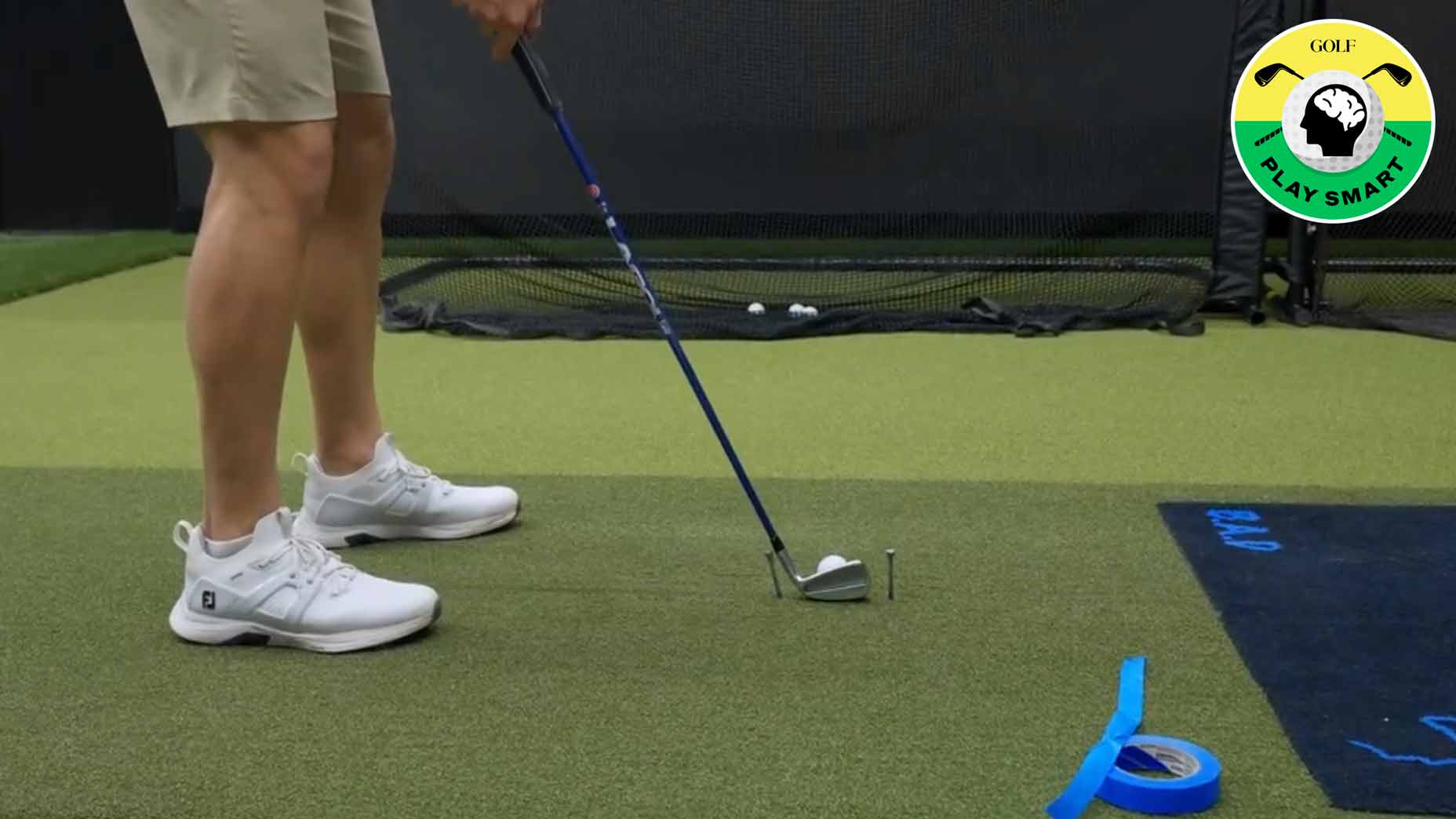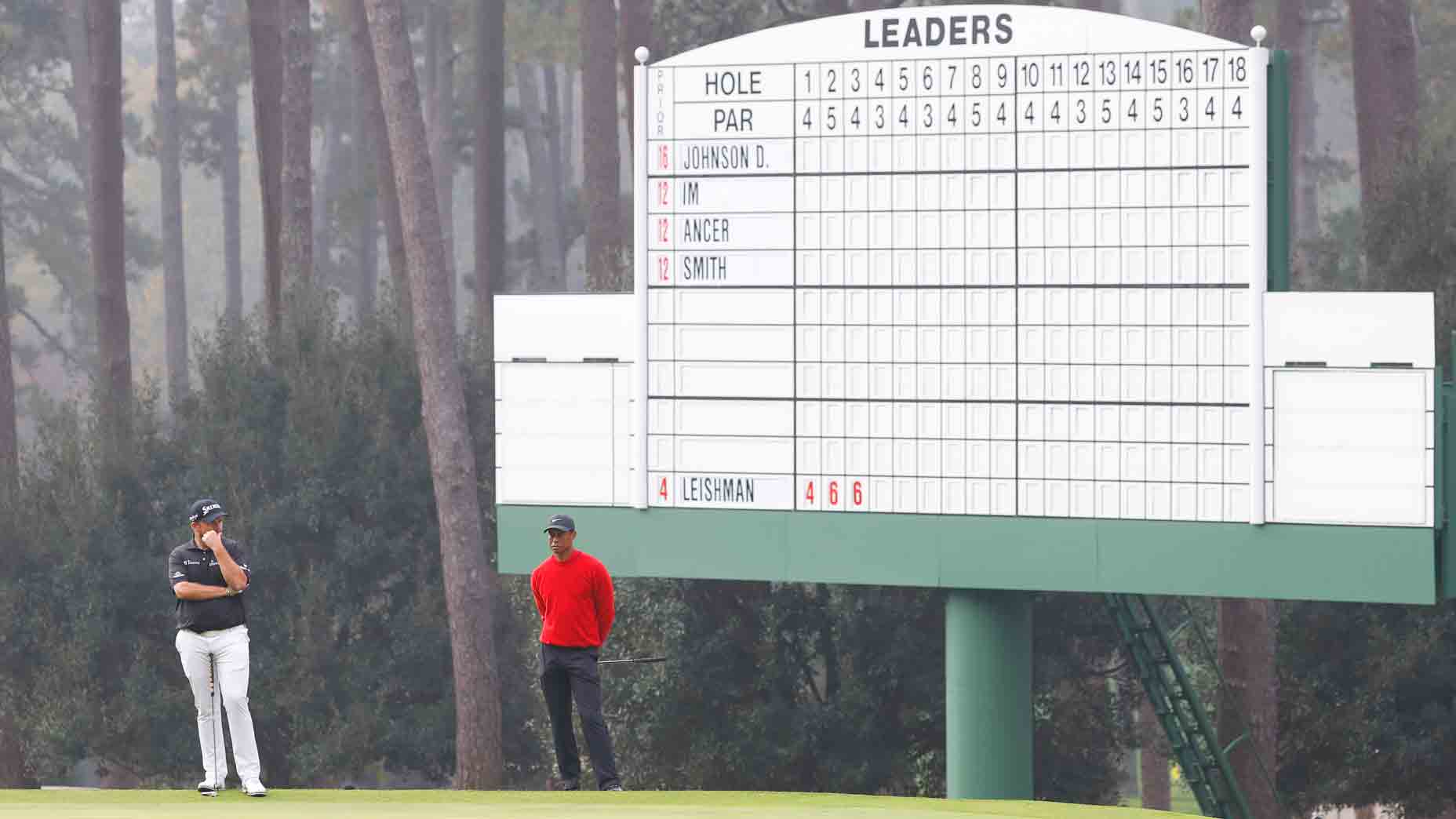Tiger Woods’ 5 simple (and genius!) rules to instantly lower your scores

In today's edition of Play Smart, we look at the five-part system Tiger Woods used to track — and lower — his scores.
Getty Images
Welcome to Play Smart, a regular GOLF.com game-improvement column that will help you play smarter, better golf.
Shooting lower scores doesn’t necessarily require you to hit the ball any better. Sometimes all it takes is a smarter approach.
Pros are great at this. They know how to think their way around the course at an elite level — and it saves them several strokes throughout the round. Recreational golfers aren’t so great at playing smart. And even when they try, they don’t know how to be smart efficiently.
This was one of Tiger Woods’ greatest strengths in his prime. He may not have always been physically sharp, but he was consistently in tune mentally. In today’s edition of Play Smart, we look at five rules Woods held himself to in order to score his best.
Tiger Woods’ 5 rules for scoring
DECADE Golf has become the preeminent course-management system of the contemporary game. Founded by Scott Fawcett, the system uses a statistical approach to course management that helps golfers lower their scores.
It might sound intimidating to the math-illiterate among us (this writer included), but it’s really not all that hard to comprehend. All it asks that you do is not make dumb mistakes on the course.
“What we’re really trying to do is just start analyzing [their games] in a productive way,” Fawcett said in an appearance on the On the Mark podcast.
How do you do that? Well, you can start by following Woods’ five rules for scoring, which Fawcett uses in his DECADE system.
1. No 6s on par-5s
Par-5s are prime scoring holes. Most golfers, even at the recreational level, will have an opportunity to hit a scoring club into the greens — or even reach the putting surface in two — so it’s important to take advantage. But that doesn’t necessarily mean making birdie. It just means avoiding bogey. When you make a bogey on a par-5, you’re giving up shots to the field. Don’t feel like you need to make birdie on these holes, just focus on eliminating bogey instead.
2. No doubles
Making a bogey will not kill your round. Making a double often will. That’s why it’s absolutely paramount you avoid them at all costs. If you find yourself in the trees, punch out and play for bogey. Don’t try the hero shot and bring a huge number into play. If you can eliminate doubles, you’ll see your scores come down in a hurry.
3. No 3-putts
Three-putting is a huge unforced error, and they add up quickly on the scorecard. If you want to become a great golfer, though, you have to learn how to eliminate them. This means you must become a great lag putter. If you can dial in your touch from distance, you’ll have a much easier time keeping three-putts off the card.
4. No bogeys with scoring clubs
The definition of a scoring club differs for each skill level, but for this exercise, we’ll say 9-iron and lower. When you have these clubs in your hands, you simply cannot make bogey. How do you ensure this? By playing smart. It might be enticing to flag hunt with a wedge in your hand, but you’d be better served to hit to the fat part of the green and take your two-putt. Once you start doing this consistently you’ll eliminate bogeys and make a few birdies along the way, too.
5. No double chips
Woods would try for no blown “easy” saves, but for recreational players, you should strive for no double chips. When you’re around the greens, the first priority should be leaving yourself with a putt on the next stroke. That might mean aiming away from the flagstick from time to time — and that’s OK. If you can chip on and two-putt, you’ll save yourself valuable strokes.










